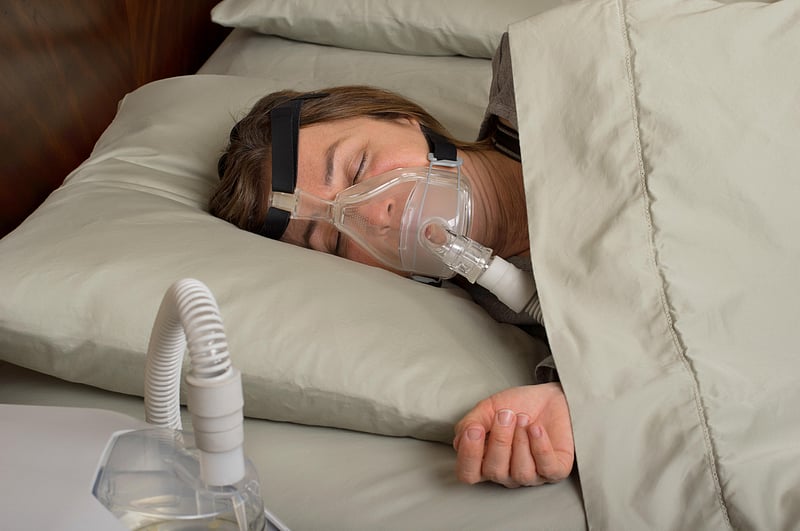Get Healthy!

- Cara Murez
- Posted March 27, 2023
Insomnia, Sleep Apnea Rise in Women With MS
While thinking declines can be a common symptom of multiple sclerosis in women, new research suggests sleep, or lack of it, could be making matters worse.
"Sleep disorders have gained substantial recognition for their role in cognitive [thinking] decline, which affects up to 70% of people with multiple sclerosis,"explained study author Dr. Tiffany Braley, director of the Multiple Sclerosis/Neuroimmunology Division and the MS Fatigue and Sleep Clinic at University of Michigan Health.
"Our results highlighted important pathways between sleep and perceptions of cognitive function in women with MS," Braley said in a university news release. "We have previously identified important associations between objective cognitive performance and sleep in people with MS, but little is known about how sleep and MS interact together to impact long-term cognitive outcomes, particularly among women who are less likely to be diagnosed with sleep disorders."
Using data for more than 60,000 women in the 2013 and 2017 waves of the Nurses' Health Study, the reseachers found that women with MS were more likely than those without MS to report sleep disorders such as obstructive sleep apnea, insomnia and sleepiness.
Sleep disorders identified in 2013 contributed to thinking problems reported by women with MS in 2017, including memory and ability to follow instructions and conversations, according to the authors.
Sleep apnea accounted for 34% of the total effect between MS and the ability to follow instructions, the study found.
The findings were published recently in the Multiple Sclerosis Journal.
"With this longitudinal study design, we are able to better estimate the burden of sleep disorders among nurses, compared to health care claims data of similar size, which include diagnosed people with sleep disorders,"said senior study author Galit Levi Dunietz, an associate professor in the Department of Neurology's Division of Sleep Medicine at Michigan Medicine.
"However, as sleep disorders are frequently underdiagnosed, health care claims data miss many people with sleep disorders who were not evaluated for these conditions," Dunietz said in the release.
Interventions to delay thinking issues may be most effective in pre-symptomatic or early symptomatic stages, Braley noted.
"Perceived cognitive decline, even in the absences of objective changes, could be an important window of opportunity to identify treatable exacerbating factors, such as sleep disorders,"she said.
More information
The National Multiple Sclerosis Society has more on thinking declines in people with MS.
SOURCE: Michigan Medicine - University of Michigan, news release, March 21, 2023




